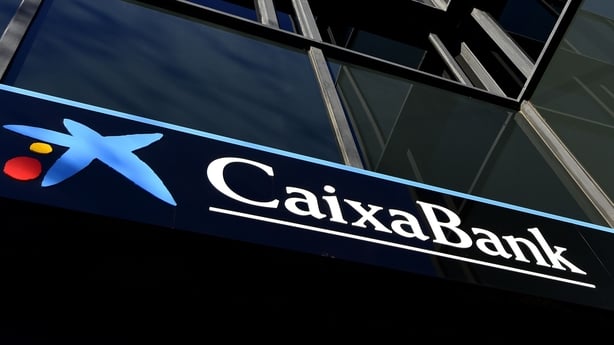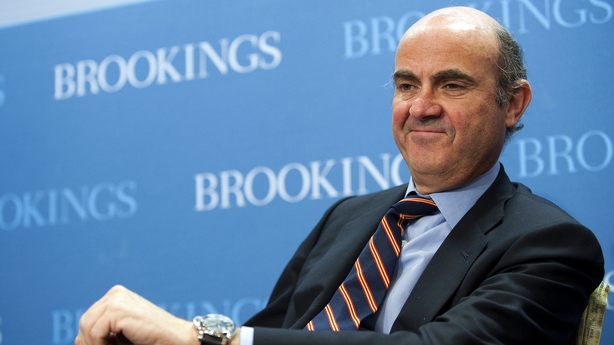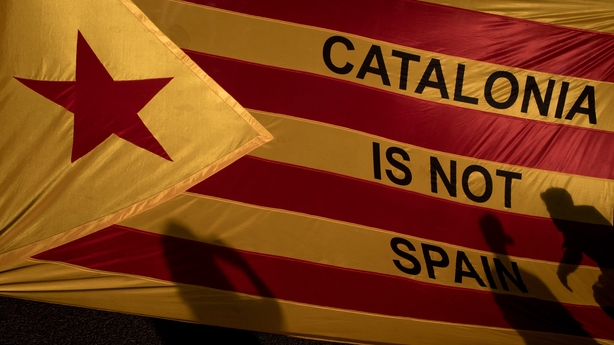Spain's government will issue a decree today making it easier for firms to transfer their legal base out of Catalonia, two sources said.
The move could deal a serious blow to the region's finances as it considers declaring independence.
The decree is tailor-made for Spanish lender Caixabank, sources said.
It would make it possible for the bank to transfer its legal and tax base to another location without having to hold a shareholders' meeting as stated in its statutes.
"The government is working on changing the law so that it's no longer need to have a shareholders' meeting, which would delay a change of the legal base in a case of emergency," one of the sources said.
The government and Caixabank declined to comment.
The board of Caixabank will meet today to study a possible transfer of its legal base away from Catalonia due to the political uncertainty in the region, a source familiar with the situation said.

Caixabank is Catalonia's biggest company by market value and accounts for around 50% of the region's banking sector.
Another Catalonia-based bank, Sabadell - Spain's fifth-biggest lender - decided yesterday to move its base from Catalonia to Alicante, on Spain's eastern coast.
Sabadell said it will shift its registered domicile away from Catalonia. A bank spokesperson said it will launch "rapid" procedures to move its legal domicile, but not its headquarters and employees, to Alicante.
Catalonia's parliament was planning to declare independence on Monday, after a banned referendum marred by violence last weekend.
That plan was cast into doubt yesterday when Spain's Constitutional Court ordered that Monday's session of the Catalan parliament be suspended.
The political crisis was "generating uncertainty that is paralysing all investment projects in Catalonia," Spanish Economy Minister Luis de Guindos said.

"I'm convinced that, right now, not one international or national investor will take part in a new investment project until this is cleared up," he said.
Shares in Sabadell and Caixabank have been pummelled this week. Reports they might move caused the stocks to surge yesterday and Sabadell rose 6% and Caixabank gained 5%.
Government plans to sell a stake in state-run lender Bankia have also been put off because of the uncertainty, de Guindos said. Madrid will look at the placement again once the Catalan situation had been resolved, he said.
However, Catalonia's planned unilateral declaration of independence has not had any impact on Spain's overall economic output, de Guindos said, reiterating that he expected growth of more than 3% this year.
Financial markets have been shaken this week by fears that secession would undermine the euro zone's fourth-biggest economy, dealing a heavy blow to Spain's finances and sending the Catalan economy into a tailspin.
Catalonia is a centre of industry and tourism that accounts for a fifth of Spain's economy, a production base for major multinationals from Volkswagen to Nestle, and home to Europe’s fastest-growing sea port.
News earlier this week that two small listed Catalan companies, Eurona Wireless Telecom and Oryzon Genomics, had decided to shift their head offices improved their share price.
Both declined to say whether they were responding to Sunday's vote.
Many Spanish business leaders and foreign companies with operations in Catalonia have expressed concern this week.

"As a businessman, as a Spaniard and as a person, I am very worried and I am scared by what's going on (in Catalonia)," said Juan Roig, chairman of Spain's biggest food retailer, Mercadona.
The influential Catalan business lobby Cercle d'Economia said it was extremely worried by the prospect of Catalonia declaring independence from Spain and called for leaders from both sides to start talks.
Dutch paint maker Akzo Nobel, which has several plants in Catalonia, said it was monitoring developments.
"From a business perspective, we are best served by a stable environment and will adapt when necessary," said Akzo Nobel spokeswoman Diana Abrahams.
German carmaker Volkswagen was earlier this week forced to halt production briefly on one of three production lines at the Catalonia plant of its Spanish unit, SEAT, when protests disrupted parts supply.
Stoppages also affected production at Nestle's instant coffee plant in Girona.
SEAT said yesterday it was operating its business as usual.
"It is too early to make an assessment on what could happen," a spokesman said. "The company is closely monitoring how the current situation is evolving."

